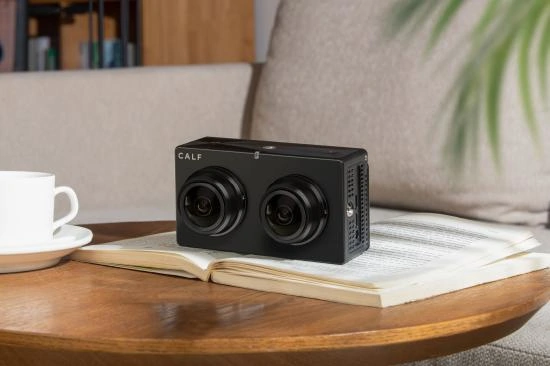Changba Karaoke is a popular mobile karaoke app from China that allows users to sing and record their performances on their smartphones. With a vast library of songs and adjustable features like key and tempo, users can customize their karaoke experience. The app offers real-time audio and video effects, and users can share their recordings with others on the platform, participate in competitions, and follow their favorite singers. Changba Karaoke has become a cultural phenomenon, contributing to the digital growth of karaoke culture. Now, Changba, the company behind this famous Karaoke app, has launched a new VR camera.
VR is a strong market right now, & Changba wants to harness its potential
Changba’s founder, Chen Hua, recently announced the company’s foray into the VR field. Their VR camera, named “Calf,” along with bundled VR software, aims to tap into the immersive experience offered by VR technology. With the rising popularity and investment in VR video, Changba hopes to leverage this market’s potential.

The first VR camera developed by Changba’s team, called “Flying,” took a year and a half to build and supports various functions such as VR180 camera, video, live broadcasting, and 3D flat video. The camera will be crowdfunded in the US market on the 20th of the month. Additionally, Changba’s VR software is already available on the Meta Quest store, the largest overseas VR application store. The Kaifei camera comes with one-click upload and live broadcasting features, allowing users to easily share their VR content on the Kaifei Cloud and Kaifei App or integrate with third-party platforms for distance education, video conferencing, and more.
However, Changba’s transition to VR video poses a lot of challenges. Number one is competition where established manufacturers like Google, Facebook, and Insta360 have their own VR camera products and platforms. Addressing users’ demands for high-quality VR video content and experience is another hurdle, considering Kaifei’s current limited resolution of 1080p, which may not meet the expectations of VR devices with 4K screens. Furthermore, Changba must explore ways to integrate and enhance its original music community resources to promote and enrich VR video content. There are also plans to potentially introduce the Kaifei camera to the Chinese market in the future.
RELATED:
- Xiaomi MIJIA Karaoke Microphone large-screen version with a USB interface launched
- The TeslaMic is an in-car karaoke microphone now selling in China for $188
- Best Gaming Chairs of 2023
(Via)







